11 Frugal Habits You Inherited From Your Parents (and Still Use Today)
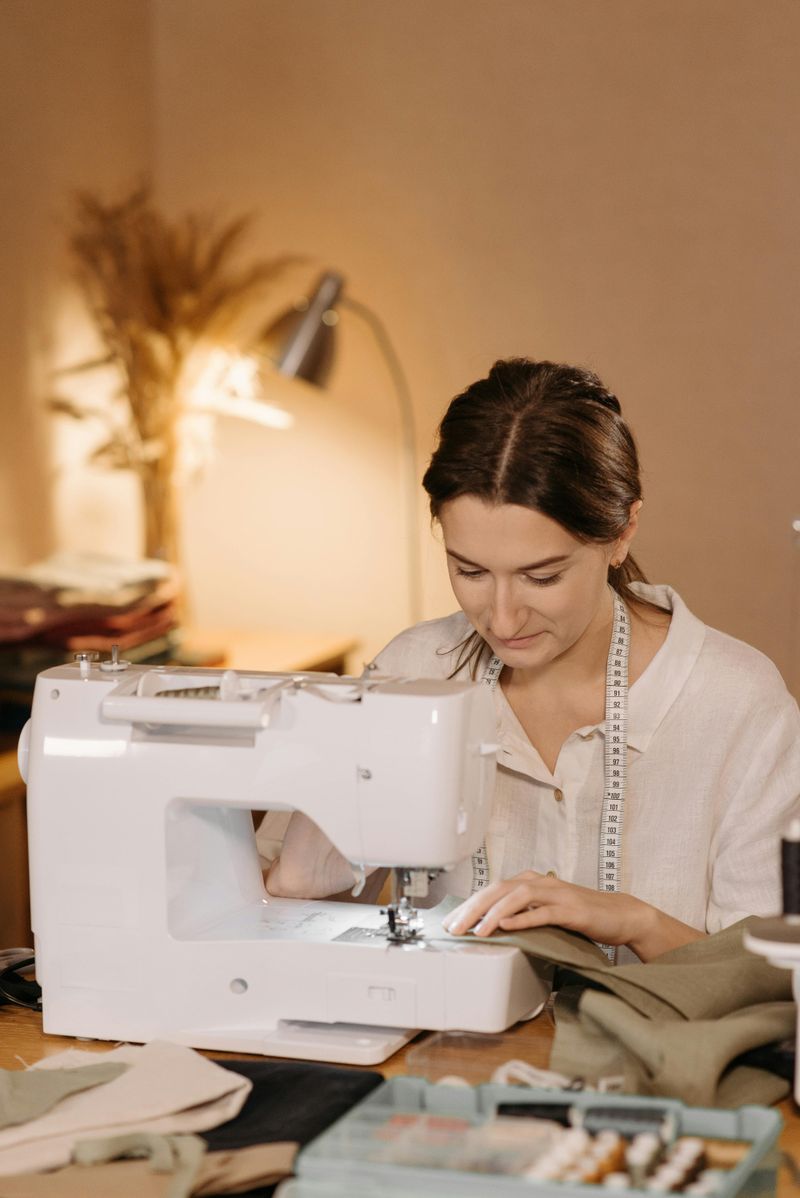
If you grew up in a home where every penny mattered, you probably still carry a few “money-saving reflexes” your parents passed down. They didn’t call it being frugal—it was just common sense. But as adults, we’ve realized those quirky little habits were actually genius ways to make every dollar stretch just a bit further.
Today, we live in a world of subscription boxes, instant delivery, and digital everything—but many of us are still reusing plastic bags and turning off lights like it’s 1997. These small things, the ones that once made us roll our eyes, now make our wallets a little happier.
1. Saving Plastic Bags and Reusing Them
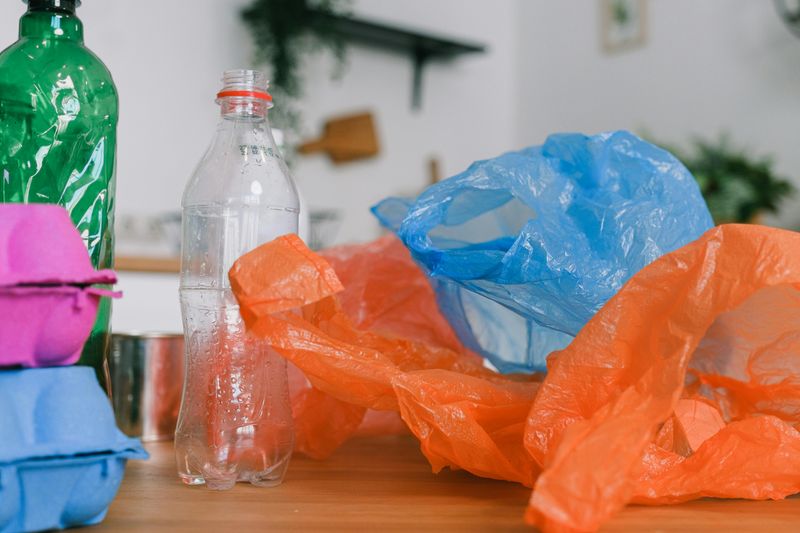
Remember when your parents never threw away a plastic bag? Those bags were folded and stored for future use, be it lining garbage bins or packing lunches. This habit of reusing plastic bags has stuck with you, as it’s both economical and environmentally friendly.
Every time you find yourself with a new stash of bags, there’s a sense of satisfaction knowing they won’t go to waste. It’s almost like a badge of honor among frugal warriors, seeing how many uses you can get from a single bag.
In an era of increasing awareness about plastic waste, this practice not only saves pennies but also contributes positively to environmental efforts. It’s a small step that makes a big difference.
2. Turning Off the Lights When Leaving a Room

Did you ever hear the phrase, “We’re not lighting the whole neighborhood”? Your parents’ thrifty advice about switching off lights is still a habit you follow. It’s a simple way to cut down on electricity bills while promoting energy efficiency.
Every time you leave a room, your hand instinctively reaches for the switch. It’s as if the words are etched in your mind, ensuring that no room is unnecessarily illuminated.
This habit not only saves money but also teaches mindfulness and consideration for energy consumption. A small flick of the switch embodies a larger commitment to living sustainably.
3. Keeping a “Junk Drawer” for Spare Items
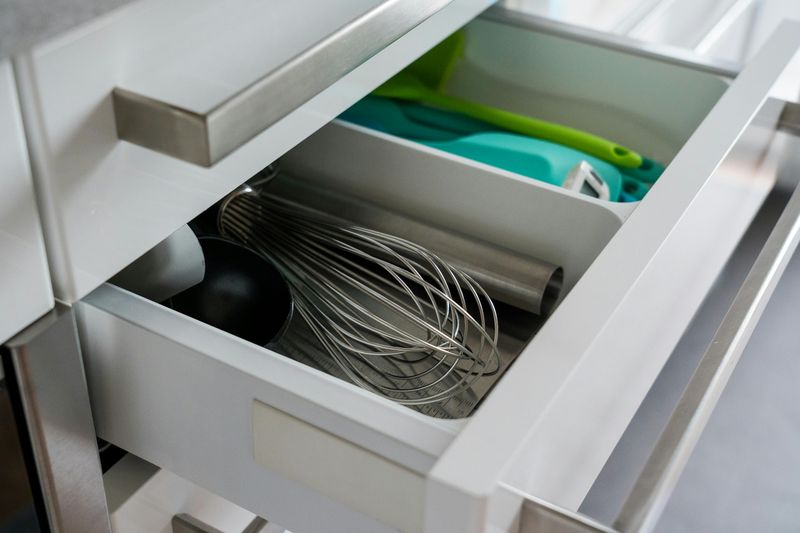
In every household, there’s that one drawer filled with odds and ends. Dubbed the “junk drawer,” it holds items like batteries and twist ties that might come in handy one day. This concept of keeping a cluttered yet resourceful space is one you’ve likely inherited.
The thrill of finding the exact thing you need amid the chaos never gets old. Whether it’s a missing screw or a spare key, the junk drawer is a treasure trove of forgotten treasures.
Having a catch-all drawer ensures that useful items aren’t discarded, saving you time and money when something needs a quick fix. It might be messy, but it’s organized chaos at its finest.
4. Cooking at Home Instead of Eating Out
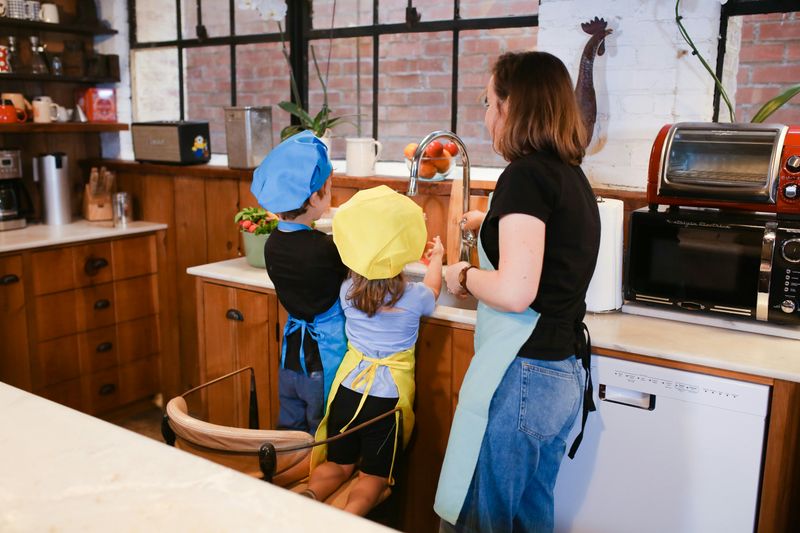
Eating out was a rare treat. This philosophy from your parents made cooking at home a cherished ritual. From Sunday roasts to weeknight stir-fries, you learned the value of homemade meals.
Cooking at home not only saves money but also brings people together. The aroma of a simmering pot and the laughter shared over a family meal are priceless.
In today’s fast-paced world, this habit keeps you grounded. It’s a chance to experiment with recipes and savor the satisfaction of a meal well-cooked. Plus, it’s healthier and more personal.
5. Washing and Reusing Old Containers
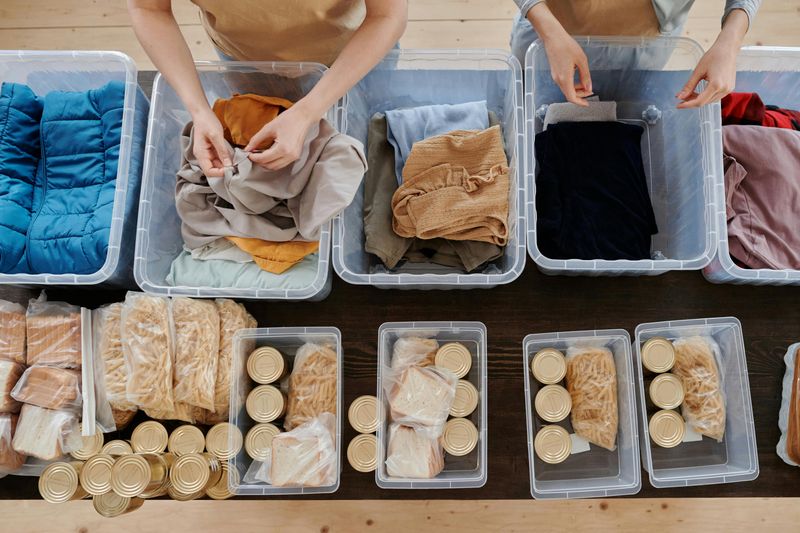
In a household where nothing was wasted, old containers found new life. Yogurt cups and glass jars became storage solutions, extending their usefulness beyond their original purpose.
This habit has followed you into adulthood, where you find joy in repurposing items. It’s about seeing potential rather than waste in everyday objects.
Reusing containers reduces clutter and conserves resources. It’s a testament to creativity and sustainability, transforming what might be discarded into something valuable.
6. Hanging Clothes to Dry Instead of Using the Dryer
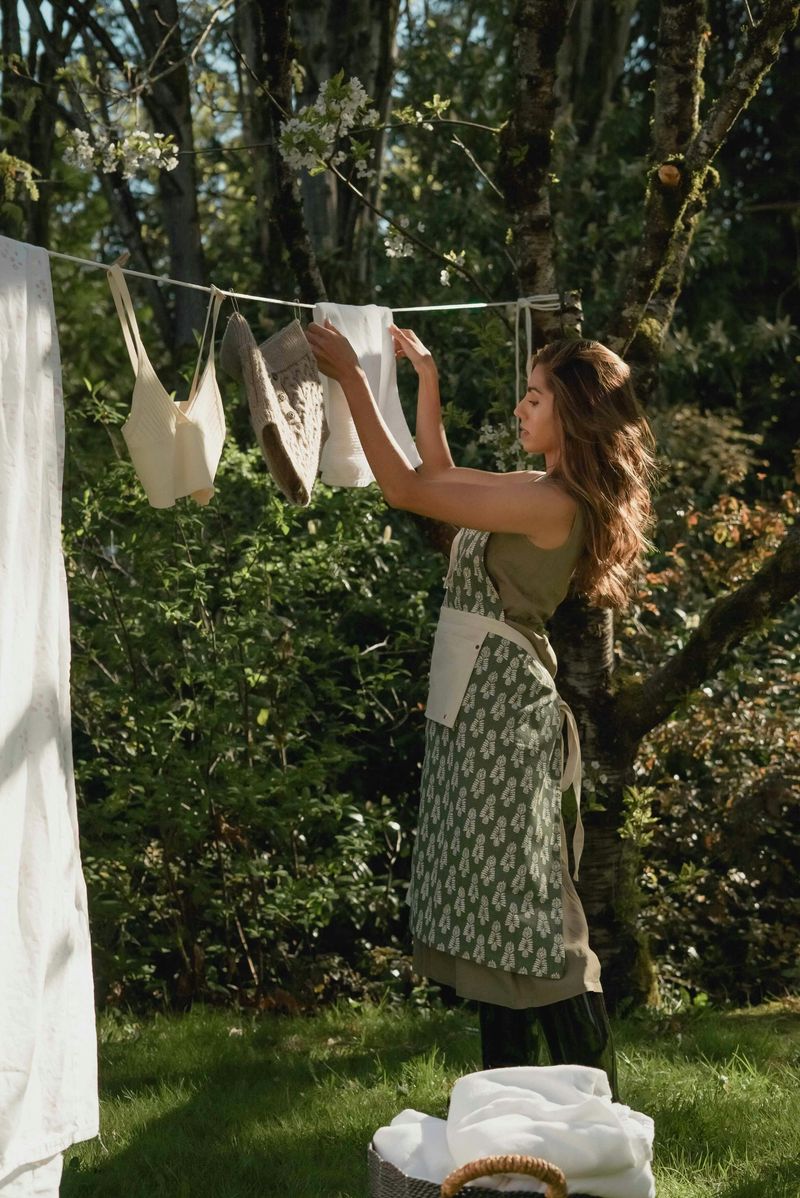
The scent of sun-dried laundry is a sensory memory from childhood. Your parents knew that air drying clothes reduced electricity bills and extended the life of garments.
Today, hanging clothes to dry connects you to those sunlit afternoons and breezy mornings. It’s a moment of tranquility in the daily routine.
This practice is both eco-friendly and economical, preserving your clothes while saving energy. It’s a habit that combines the practical with the nostalgic.
7. Fixing or Mending Instead of Replacing
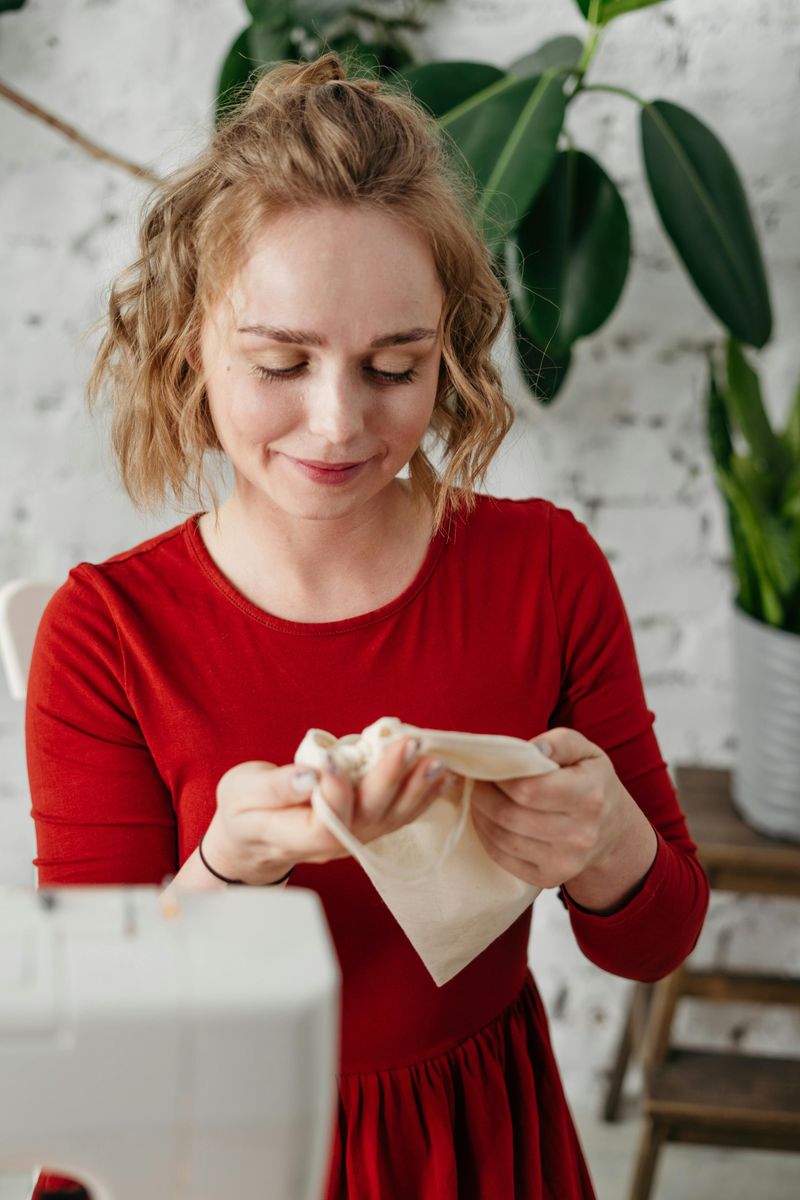
When a seam unraveled or a button went missing, your parents didn’t rush to the store for replacements. They reached for a needle and thread, teaching you the art of mending.
This skill has been invaluable, saving money and reducing waste by extending the life of your belongings. It’s a mindful approach to consumption.
In a world of fast fashion and disposable goods, the ability to fix rather than replace is a revolutionary act. It’s about valuing quality and craftsmanship over convenience.
8. Buying Generic Instead of Name Brand

Your parents knew that generic brands offered the same quality as their pricier counterparts. This lesson in savvy shopping has led you to embrace store brands.
Choosing generic over name-brand products frees up your budget for other priorities. Whether it’s cereal or cleaning supplies, you know a good deal when you see one.
This habit is about making informed choices and understanding that quality isn’t always tied to a label. It’s a frugal mindset that allows for smarter spending.
9. Keeping the Thermostat Low in Winter (and Wearing a Sweater Instead)
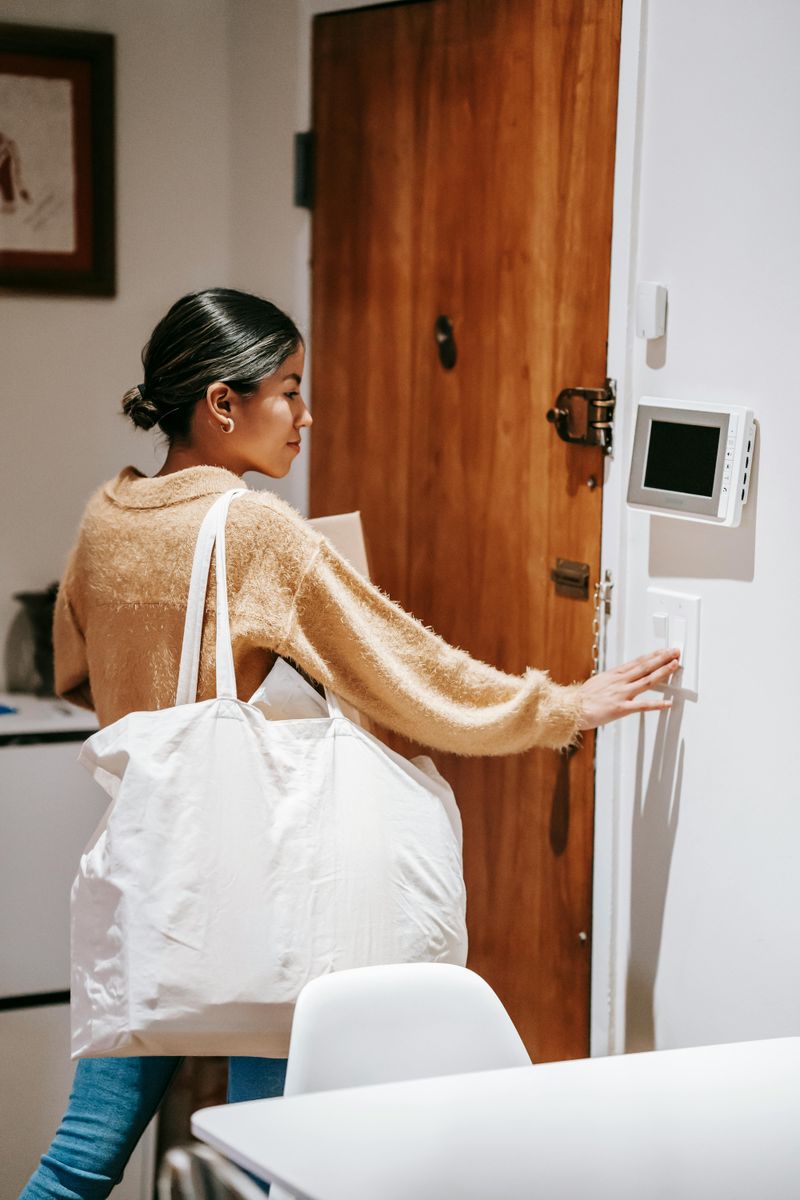
Layering up to keep warm while the thermostat stays low is a practice rooted in frugality. Your parents’ advice to throw on a sweater to save on heating costs still resonates.
This habit promotes energy conservation and encourages a cozy, homely atmosphere. Wrapping up in blankets and sipping hot drinks becomes a cherished winter ritual.
In today’s energy-conscious world, embracing the chill is as much about sustainability as it is about savings. It’s a simple yet effective strategy.
10. Using Every Last Drop

Growing up, waste was not an option. Whether it was shampoo or toothpaste, your parents made sure you used every last drop. This conscious effort to minimize waste has become second nature.
Squeezing out the final bit from a tube or bottle is a small triumph, a nod to resourcefulness. It’s about respecting the value of what you have.
This practice encourages a mindful approach to consumption, ensuring nothing goes to waste. It’s a frugal habit that respects both your wallet and the planet.
11. Making Coffee at Home Instead of Buying It Daily
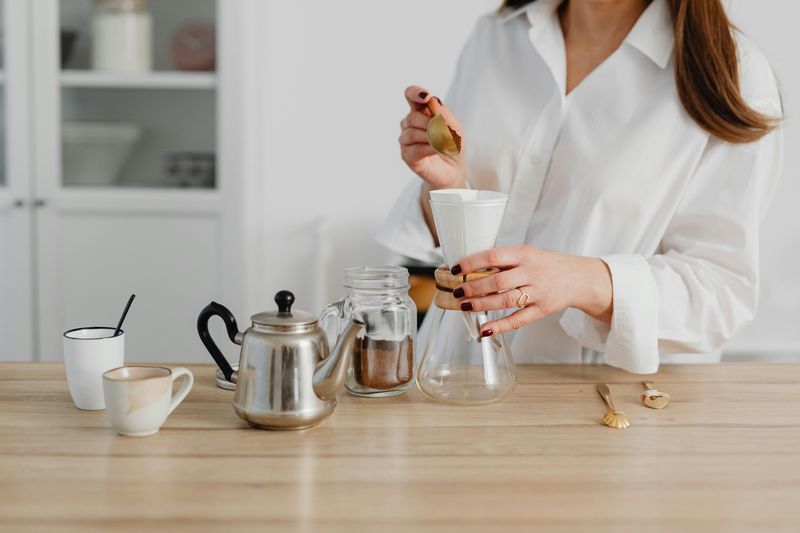
The aroma of freshly brewed coffee at home is a comforting reminder of mornings gone by. Your parents’ economical choice to brew rather than buy has become a cherished ritual.
Making coffee at home not only saves money but also allows for personalization and creativity in crafting each cup. It’s a moment of peace before the day begins.
In a world where the daily coffee shop stop is common, brewing at home is a small yet significant act of frugality. It’s about savoring the simple pleasures.

Comments
Loading…